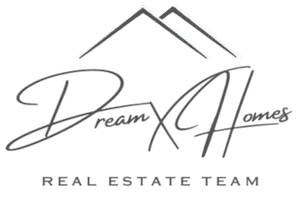Tired of Feeling Lost in the Home Loan Maze?
Get 5 Insider Secrets from NAR(National Association of Realtors) that Make Navigating Your Loan Simple and Stress-Free!
I consent to receive calls and texts from DreamX Homes & Glasshouse Realty Group for real estate information and assistance. You can unsubscribe anytime.
Unlocking the Door to Your New Home: A Comprehensive Buying Guide
Unlocking the Door to Your New Home: A Comprehensive Buying Guide

Home buying process guide is often seen as a daunting labyrinth, especially for first-time buyers stepping into the property market. However, with the right preparation and knowledge, it doesn't have to be overwhelming. At its core, the journey from dreaming about owning a home to actually having the keys in hand is not just a financial decision but also a major life milestone.
Here’s the basic trajectory of the home buying process:
- Define Your Needs: Decide what type of home best suits your lifestyle.
- Budgeting and Financing: Determine how much home you can afford and explore financing options.
- House Hunt: Find listings that match your criteria, and tour homes.
- Make An Offer: Once you find "the one," submit a compelling offer.
- Closing the Deal: Steer the final negotiations, inspections, and closing steps to secure your home.
Whether you view home buying as an investment or a leap into self-sufficiency, our guide is custom to simplify each stage, offering insights and tips for a seamless journey. Let’s open up the door to your new home!

Preparing Your Finances
Before starting on the exciting journey of buying a home, it's crucial to get your finances in order. This involves understanding your credit score, setting a realistic budget, building up your savings, and keeping an eye on your debt-to-income ratio.
Credit Score
Your credit score is a key factor that lenders use to determine your mortgage eligibility and interest rates. A higher score can lead to better loan terms. For example, a conventional loan often requires a minimum credit score of 620. If your score is lower, consider taking steps to improve it, such as paying bills on time and reducing debt.

Budget
Creating a budget helps you understand how much house you can afford. Consider both upfront costs, like the down payment and closing costs, and ongoing expenses, such as mortgage payments, property taxes, and insurance. Use a home affordability calculator to estimate what fits within your financial comfort zone.
Savings
You'll need savings for a down payment, which varies by loan type. A conventional loan might require as little as 3% down, but putting down less than 20% usually means you'll need private mortgage insurance (PMI). Additionally, having an emergency fund is wise for unexpected home repairs and maintenance.
Debt-to-Income Ratio
Lenders also assess your debt-to-income (DTI) ratio, which compares your monthly debt payments to your gross income. Most lenders prefer a DTI ratio of 36% or lower, although some may accept up to 50%. Keeping your DTI low not only helps with loan approval but also ensures you can comfortably manage your monthly payments.
By focusing on these financial aspects, you can set a solid foundation for your home buying journey. With a clear understanding of your finances, you're one step closer to open uping the door to your new home.
Next, we'll dive into the home buying process guide, exploring financing options and the role of a real estate agent in your journey.
Understanding the Home Buying Process Guide
Starting on the home buying journey can feel overwhelming, but understanding the process helps simplify it. Let's break down the key components: financing options, mortgage preapproval, and the role of a real estate agent.
Financing Options
Before you start house hunting, familiarize yourself with the different types of mortgage loans available. Here's a quick overview:
- Conventional Loans: These typically require a minimum credit score of 620. You can put down as little as 3%, but if it's less than 20%, you'll need private mortgage insurance (PMI).
- FHA Loans: Backed by the Federal Housing Administration, these loans are ideal for first-time buyers. They require a credit score of at least 580 with a 3.5% down payment, or 500-579 with 10% down.
- VA Loans: Available to veterans and active-duty military, these loans often require no down payment and have no PMI.
- USDA Loans: Designed for rural property buyers, these also offer no down payment options and come with income limits.
Your choice of loan affects your down payment, interest rate, and monthly payments, so consider your financial situation and future plans when selecting.
Mortgage Preapproval
Getting preapproved for a mortgage is a crucial step. It shows sellers you're serious and financially ready to buy. During preapproval, a lender reviews your financial information to determine how much you can borrow. This process involves submitting documents like pay stubs, tax returns, and bank statements.
Why is preapproval important?
- Credibility: Sellers often prefer offers from preapproved buyers.
- Budgeting: It helps you understand your price range, preventing you from falling in love with homes outside your budget.
- Speed: Preapproved buyers can close deals faster, which is a big plus in competitive markets.

Real Estate Agent
A real estate agent is your guide through the home buying maze. They help you find homes that match your criteria and budget, negotiate offers, and steer the closing process. Here’s how they can make your journey smoother:
- Market Knowledge: Agents understand local markets and can provide insights on neighborhoods, schools, and property values.
- Negotiation Skills: They handle offer negotiations, ensuring you get the best deal possible.
- Paperwork Assistance: Buying a home involves a lot of paperwork. Agents manage the documentation, making sure everything is in order.
When choosing an agent, consider their experience, knowledge of your desired area, and communication style. A good agent is a valuable ally in your home buying process.
With a firm grasp of financing options, mortgage preapproval, and the role of a real estate agent, you're well-equipped to tackle the next steps in your home buying journey. Up next, we'll explore how to find your dream home and what to look for in a property.
Finding Your Dream Home
The thrill of finding your dream home is like no other. But before you dive into house hunting, let's break down what you'll need to consider: property features, neighborhood, and how to make your search effective.
House Hunting
House hunting is more than just scrolling through listings. It's about finding a place that suits your lifestyle and meets your needs. Start by listing your must-haves and nice-to-haves. This might include the number of bedrooms, a spacious kitchen, or a backyard for your dog.
Once you have your list, prioritize. What's non-negotiable? What's flexible? Rank these features to help narrow your search.
Pro Tip: Use real estate websites to research homes that fit your criteria. They offer tools like virtual tours and neighborhood insights to aid your decision-making.
Property Features
When evaluating a home, consider both the big and small details. Here are some features to keep an eye on:
- Size and Layout: Does the space fit your current and future needs? Think about room sizes and floor plans.
- Condition and Repairs: Is it move-in ready, or will it need renovations? A fixer-upper might save money upfront but could require more time and investment later.
- Amenities: Look for features like a garage, pool, or energy-efficient appliances. These can add value and comfort to your new home.
Flexibility is key. You might not find a place that ticks every box, but aim for a home that meets most of your priorities.
Neighborhood
Your neighborhood is just as important as the home itself. It affects your daily life, long-term happiness, and even property value. Here's what to consider:
- Schools: If you have kids or plan to, check the local school district rankings.
- Transportation: Is there easy access to public transport or major highways?
- Safety: Research crime rates and talk to locals about their experiences.
- Community: Visit the area at different times to get a feel for the vibe. Are there parks, shops, or restaurants nearby?
- Future Development: Check if there are plans for new developments. These can impact property values and quality of life.
Pro Tip: Take notes during home tours. This will help you remember each property's pros and cons when it's time to decide.
Finding your dream home is a journey. With careful planning and a clear understanding of what you want, you're well on your way to open uping the door to your new home. Next, we'll dive into making an offer and closing the deal.
Making an Offer and Closing the Deal
Once you've found the home that feels just right, it's time to make an offer and start the closing process. This part of the home buying process guide can be both exciting and nerve-wracking. Let's break it down.
Offer Negotiation
Making an offer on your dream home is like starting a conversation. You want to be clear and confident. Your real estate agent will help you craft an offer letter that includes your proposed price and any contingencies, like a home inspection.
Pro Tip: Ask your agent to run a comparative market analysis. This will show what similar homes in the area have sold for, helping you determine a fair offer (source).
Once your offer is submitted, the seller can accept, reject, or counter it. Be prepared for some back-and-forth. Negotiations may involve adjusting the price or terms of the sale.
Remember: You can always walk away if the deal doesn't feel right. Sometimes, patience leads to better opportunities.
Home Inspection
A home inspection is your chance to uncover any hidden issues. Hire a professional inspector to evaluate the property from top to bottom. They will check the roof, foundation, electrical systems, and more.
After the inspection, you'll receive a report detailing any problems. If significant repairs are needed, you can negotiate with the seller to fix them or adjust the purchase price. If the seller isn't willing to compromise and you have an inspection contingency, you can still back out without losing your earnest money deposit (source).
Pro Tip: Attend the inspection if possible. It’s a great way to learn about the home’s condition and ask questions.
Closing Costs
Closing costs are the fees you pay to finalize your home purchase. They typically include loan origination fees, appraisal fees, title insurance, and more. These can add up to 2-5% of the home's purchase price.
Negotiate these costs where possible. Some fees, like junk fees, can be reduced or eliminated if you speak up (source).
Pro Tip: Ask the seller to cover some of the closing costs. This is more common in a buyer's market.
Once everything is agreed upon, you'll sign a purchase and sale agreement. This legally binds the deal and moves it into escrow, a period where the house is off the market while you finalize your mortgage and prepare for closing (source).
Finalizing the Deal
As the closing date approaches, you'll receive a closing disclosure detailing your loan terms and final costs. Review it carefully. You’ll also do a final walkthrough of the home to ensure everything is in order and any agreed-upon repairs are completed.
Pro Tip: Keep a checklist of everything you need to bring to closing, like your ID and proof of insurance. This will help ensure a smooth process.
Once the papers are signed and funds are transferred, the home is officially yours. Congratulations on open uping the door to your new home!
Next, we'll answer some frequently asked questions about the home buying process.
Frequently Asked Questions about Home Buying Process Guide
What are the steps in order for buying a home?
The home buying process is a journey with several key steps. Here's a simple breakdown:
- Prepare Your Finances: Check your credit score, budget, and savings. Know your debt-to-income ratio.
- Get Preapproved for a Mortgage: This shows sellers you're serious and know your budget.
- Find a Real Estate Agent: A good agent guides you through finding and buying your home.
- House Hunting: Look for homes that fit your needs and budget. Consider features and the neighborhood.
- Make an Offer: Negotiate the price and terms with the seller.
- Conduct a Home Inspection: Check for any issues with the property.
- Close the Deal: Pay closing costs and sign the necessary paperwork.
- Move In: Congratulations, you're a homeowner!
What are the 5 phases of buying a home?
Buying a home can be divided into these five phases:
- Financial Preparation: Assess your finances and get preapproved for a mortgage.
- House Hunting: Search for homes and visit properties.
- Making an Offer: Negotiate the price and terms with the seller.
- Due Diligence: Conduct inspections and appraisals.
- Closing: Finalize the paperwork and transfer ownership.
What is Step 6 in buying a house?
Step 6 is conducting a home inspection. This step is crucial because it helps you uncover any hidden issues in the property. Hiring a professional inspector to evaluate the home ensures you know what you're buying. If the inspection reveals problems, you can negotiate repairs with the seller or reconsider your offer if you have an inspection contingency. This step ensures your investment is sound and aligns with your expectations.
Conclusion
As we wrap up this home buying process guide, it's clear that owning a home is more than just a financial investment—it's a gateway to a new chapter in life. At Glasshouse Realty Group, we understand that buying a home is a big deal, and we're here to make it as smooth as possible for you.
Homeownership comes with a host of benefits. It provides stability, a sense of community, and the freedom to make a space truly your own. Plus, over time, owning a home can help build wealth as you pay off your mortgage and (hopefully) see your property value rise.
But remember, buying a home isn't just about today—it's about planning for the future. It's essential to think about your long-term goals and how your new home fits into those plans. Whether you're considering expanding your family, starting a new job, or even planning for retirement, your home will play a key role.
At Glasshouse Realty Group, we are committed to helping you steer this journey with ease. We offer personalized guides and use advanced tools to ensure transparency and accuracy in every transaction. Our team is ready to assist you in finding not just any house, but the perfect home that fits your lifestyle and future aspirations.
For those looking to explore the beautiful Trails of Todhunter, check out our listings and start your journey towards homeownership with us today!
Start on this exciting path with confidence and let us open up the door to your new home.
Categories
- All Blogs 92
- Boosting Home Value 3
- Buyer Resources 13
- Eco-Friendly Upgrades 1
- First-Time Buyer Tips 2
- Home Buying & Selling 3
- Home Improvement & Staging 5
- Investment & Financing 14
- Local Attractions & Schools 5
- Local Market Trends 8
- Local Policy Changes 2
- Market & Industry News 2
- Market Insights 6
- Mistakes to Avoid 1
- Mortgage & Financing 22
- Neighborhood Spotlights 12
- Neighborhoods & Lifestyle 18
- New Construction 10
- Real Estate News & Updates 4
- Real Estate Technology 2
- Seller Resources 4
- Staging Tips 2
- Sustainability 3
Recent Posts










Tired of Feeling Lost in the Home Loan Maze?
Get 5 Insider Secrets from NAR(National Association of Realtors) that Make Navigating Your Loan Simple and Stress-Free!
I consent to receive calls and texts from DreamX Homes & Glasshouse Realty Group for real estate information and assistance. You can unsubscribe anytime.

"My job is to find and attract mastery-based agents to the office, protect the culture, and make sure everyone is happy! "

